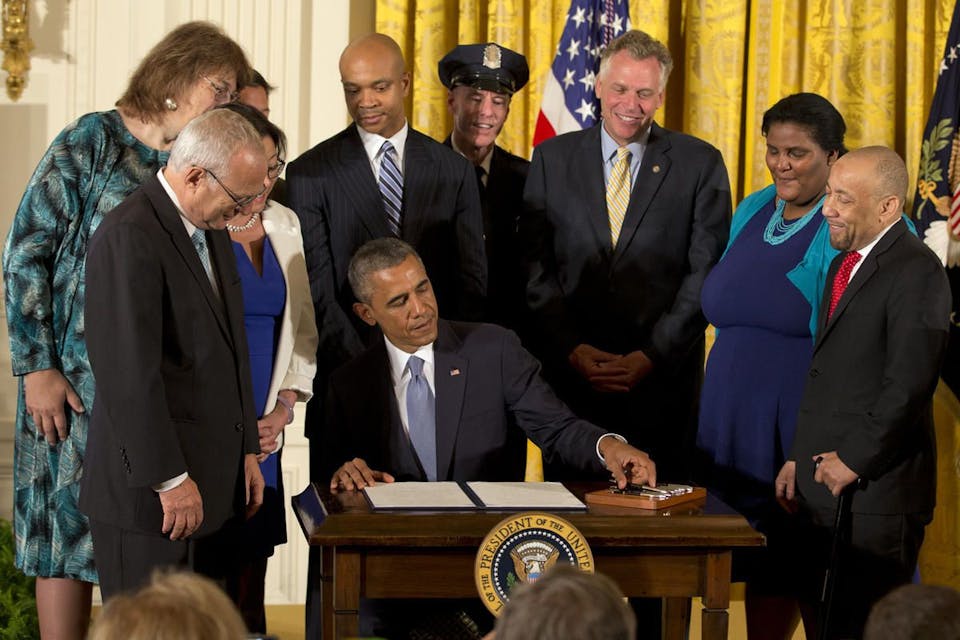
February 16, 2012
Lines Crossed: Separation of Church and State
By Rabbi Meir SoloveichikHas the Obama administration infringed on freedom of religion and freedom of conscience?
In August of 1790, Moses Seixas, a leading member of the Hebrew Congregation of Newport, Rhode Island, composed a letter to then President George Washington, who was visiting Newport. In his letter, Seixas gave voice to his people’s love of America and its liberties. “Deprived as we heretofore have been of the invaluable rights of free citizens,” wrote Seixas, “we now (with a deep sense of gratitude to the Almighty disposer of all events) behold a Government which to bigotry gives no sanction, to persecution no assistance.” Washington responded with sentiments that Jews hold dear to this day. “The Citizens of the United States of America have a right to applaud themselves,” wrote Washington, “for giving to Mankind . . . a policy worthy of imitation. All possess alike liberty of conscience and immunities of citizenship.”
On Friday, in an op ed in the Wall Street Journal, I joined Catholic and Protestant leaders in protesting a violation of religious freedom stemming from the Department of Health and Human Services’ new directive obligating religious organizations employing or serving members of other faiths to facilitate acts that those religious organizations consider violations of their religious tradition. Later the same day, the administration announced what it called an “accommodation”: not religious organizations but rather insurance companies would be the ones paying for the prescriptions and procedures that a faith community may find violative of its religious tenets. This putative accommodation is, however, no accommodation at all. The religious organizations would still be obligated to provide employees with an insurance policy that facilitates acts violating the organization’s religious tenets. Although the religious leaders of the American Catholic community communicated this on Friday evening, the administration has refused to change its position, thereby insisting that a faith community must either violate a tenet of its faith, or be penalized.
What I wish to focus on this morning is the exemption to the new insurance policy requirements that the administration did carve out from the outset: to wit, exempting from the new insurance policy obligations religious organizations that do not employ or serve members of other faiths. From this exemption carved out by the administration, at least two important corollaries follow. First: by carving out an exemption, however narrow, the administration implicitly acknowledges that forcing employers to purchase these insurance policies may involve a violation of religious freedom. Second, the administration implicitly assumes that those who employ or help others of a different religion are no longer acting in a religious capacity, and as such are not entitled to the protection of the First Amendment.